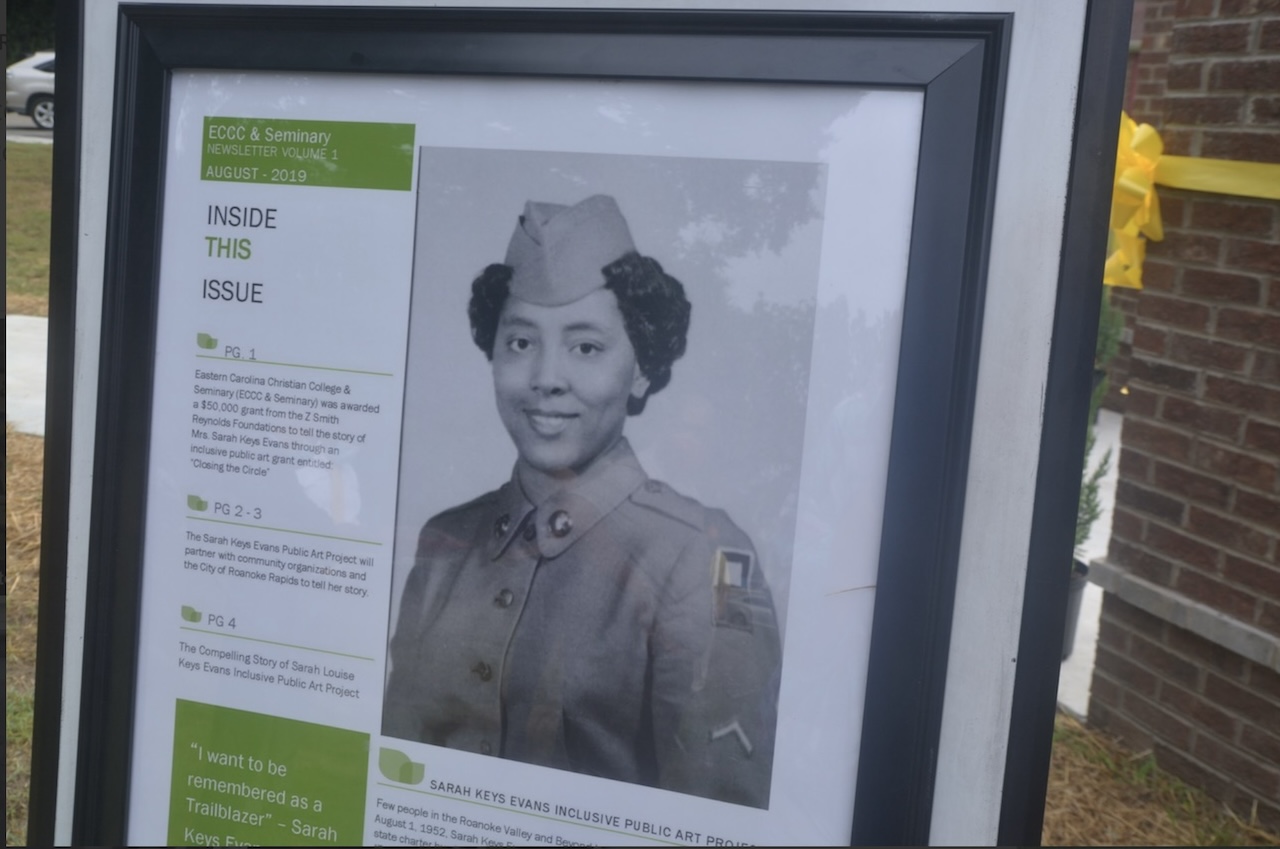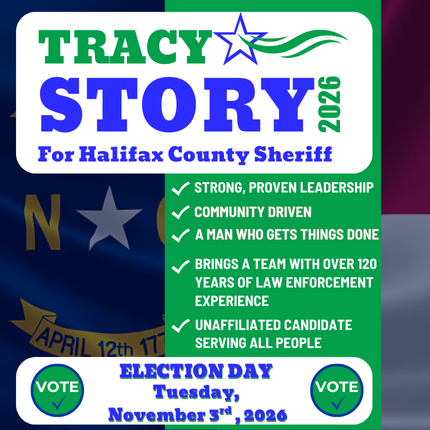Sarah Keys Evans, the Women’s Army Corps member who was arrested after refusing to give up her seat to a white Marine on a bus layover in Roanoke Rapids, died Thursday, members of a committee which was awarded a grant for an inclusive public art plaza in her honor, confirmed.
“On behalf of the mayor, city council, city of Roanoke Rapids, and the Sarah Keys Evans Committee we would like to send our most heartfelt sympathy to the family,” parks and recreation Director John Simeon, who worked with the committee to bring the plaza to Martin Luther King Jr. Park said. “No one can ever prepare us for the loss of a loved one. We wish the family peace and strength as they mourn the loss of a true trailblazer and historic figure.”
It was in 1952 that Keys Evans was ordered to the back of a bus in Roanoke Rapids as she was on her way home to the North Carolina city of Washington.
A highway marker on Roanoke Avenue at the site of the former bus station honors those events which led to the landmark Keys vs. Carolina Coach Company lawsuit. In 1955 the Interstate Commerce Commission ruled in her favor stating that the Interstate Commerce Act forbade segregation.
“One week later that’s when Rosa Parks in Montgomery, Alabama, took a clue from Sarah Louise Keys and she too refused,” former Congressman G.K. Butterfield said at the plaza opening in August of 2020. “That gave birth to Martin Luther King Jr. to head up the Montgomery bus boycott. Rosa Parks got the energy and the will with what she did partly because of what happened here in Roanoke Rapids. That just catapulted Martin Luther King Jr. to the national stage.”
Ervin V. Griffin Sr., a member of the committee said members of the family told them the news. “She was a great woman, a very strong woman — a trailblazer for what she had done, coming in by herself as a woman in the 50s and standing up for all of our rights.”
Griffin called her act a phenomenal one that led “us to sit anywhere we wanted on interstate commerce. One of the things that was pointed out to me was that Bobby Kennedy used the Keys case when they were doing the Freedom Rides in the 60s and that was one of the ways that he justified people riding buses all over the south. I think for me it’s just how strong and vibrant she was well into her 90s. That just shows me that you can live a long life and it can be a life worth living.”
Griffin said that Keys Evans was proud of the plaza in her honor. “I think it’s a great memorial to her now that will be there in perpetuity. I’m glad we did it.”
At the opening of the plaza at the intersection of Wyche Street and Virginia Avenue, she said via Zoom, “This is a glorious day for me. This dedication and celebration makes me very, very happy. I believe we all have a kinship. I wish I could have been there in person but from what I’ve heard it is marvelous and I am very, very happy and very proud of everyone.”
While she said she probably couldn’t remember the names of all who spoke, she said, “I am very happy I’m being honored there today.”
Reverend C.E. McCollum, another member of the committee, said there will be plans made to honor her life locally. “She became a living legend and we will sorely miss her. She lived long enough to enjoy the fruits of her labor.”
McCollum, who also made accomplishments in the civil rights field, said Keys Evans became a benchmark. “I hope we all live long enough to enjoy the things that we have contributed to — the wellbeing of other people other than ourselves.”
She became courageous, the minister said, in the fact that she could stand for something and not worry about what others thought.
Georgette Kimball, who has stayed in contact with her family members, said the death of Keys Evans is a great loss to her family and members of the committee which worked to bring the plaza to Roanoke Rapids. “We never got to meet her but I’ve talked to her several times. It’s a loss but I’m so thankful this committee chose to acknowledge her. I feel like she got some flowers while she was living. I feel good about that for the committee and it was just a pleasure getting to know her, researching her and being able to share the good news about her with the community and the world.”
Kimball said it was a true blessing and divine intervention “that we got this award from Z. Smith Reynolds. Dr. Griffin was very instrumental in applying for it.”
She said the committee believed Keys Evans never got the acknowledgment for her accomplishments she deserved. “We should know the history of what happened here. I think it’s great that we had the opportunity to get that funding and build that monument and try to share it with the community.”
Keys Evans was a humble person, Kimball said. “It was a story she really didn’t want to talk about. It was like a past she wanted to put behind her because some other people would claim they did this or did that but she was very humble and appreciative that we did this.”
Kimball described Keys Evans as a strong tower. “If you look at what she went through that night, she’s seen a lot in her 94 years.”
She described Keys Evans as steadfast. “She stood strong. She was not resentful that it was done to her. A lot of people would be bitter and resentful but she wasn’t. She just said she did what she had to do.”
While Keys Evans never considered herself a hero or a trailblazer, Kimball said, “She opened doors for others. That’s why we felt we just needed to acknowledge her and thank her for what she did. She helped us to get to ride the buses.”









